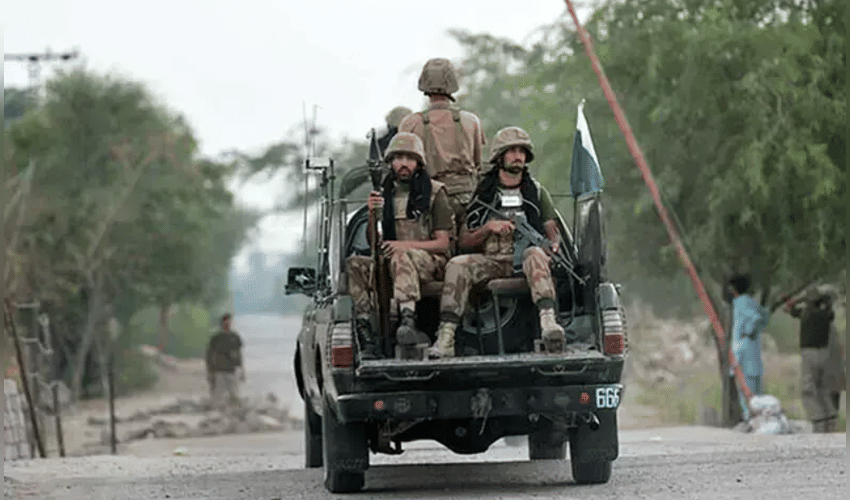Asia In News
25 terrorists were eliminated and five soldiers lost their lives during operations in KP.

In a fierce counterterrorism operation in Khyber Pakhtunkhwa (KP), security forces successfully neutralized 25 terrorists while sacrificing five brave soldiers who lost their lives in the line of duty. This operation, conducted near the Pakistan-Afghanistan border in the districts of Kurram and North Waziristan, was aimed at preventing infiltration attempts by terrorists affiliated with the banned group known locally as “Fitna Al-Khawarij,” which Pakistan identifies as an India-backed outfit.
The Pakistan military’s Inter-Services Public Relations (ISPR) shared that the security forces observed two large groups of militants attempting to cross into Pakistani territory. Intense clashes ensued, resulting in the deaths of 15 terrorists in North Waziristan’s Spinwam area and another 10 in Kurram’s Ghokhi region. Among the militants killed were four suicide bombers, and a significant cache of weapons and explosives was seized during the operation. Unfortunately, the soldiers who made the ultimate sacrifice were Havaldar Manzoor Hussain, Sepoy Nauman Ilyas Kayani, Sepoy Muhammad Adeel, Sepoy Shah Jehan, and Sepoy Ali Asghar.
This successful operation comes amid ongoing diplomatic talks between Pakistan and Afghanistan, focusing on curbing cross-border terrorism. Pakistan has consistently expressed concerns about the use of Afghan soil by terrorist groups to launch attacks in its territory and has urged the Afghan interim government to honor commitments under the Doha Agreement to tighten border control.
The military emphasized that the sacrifice of the soldiers strengthens the resolve of Pakistan’s security forces to defend the nation and continue their comprehensive campaign against terrorism. A clearance operation is underway to eliminate any remaining militant presence. This relentless drive highlights the ongoing challenge faced by Pakistan’s armed forces in securing the western borders and combating militants backed by external forces.
The operation also shines a light on the broader security dynamics in the region, where groups like the banned Tehreek-e-Taliban Pakistan (TTP) maintain an active footprint. These militant groups have intensified their activities, challenging stability and peace efforts. Pakistan’s security apparatus continues to prioritize intelligence-based operations to target these groups effectively.
From a strategic perspective, strong and timely military responses like this one are crucial in countering militant infiltration, preventing terrorist attacks, and safeguarding civilian lives. It also underscores the importance of regional cooperation and effective border management as crucial pieces in the puzzle of regional security.



